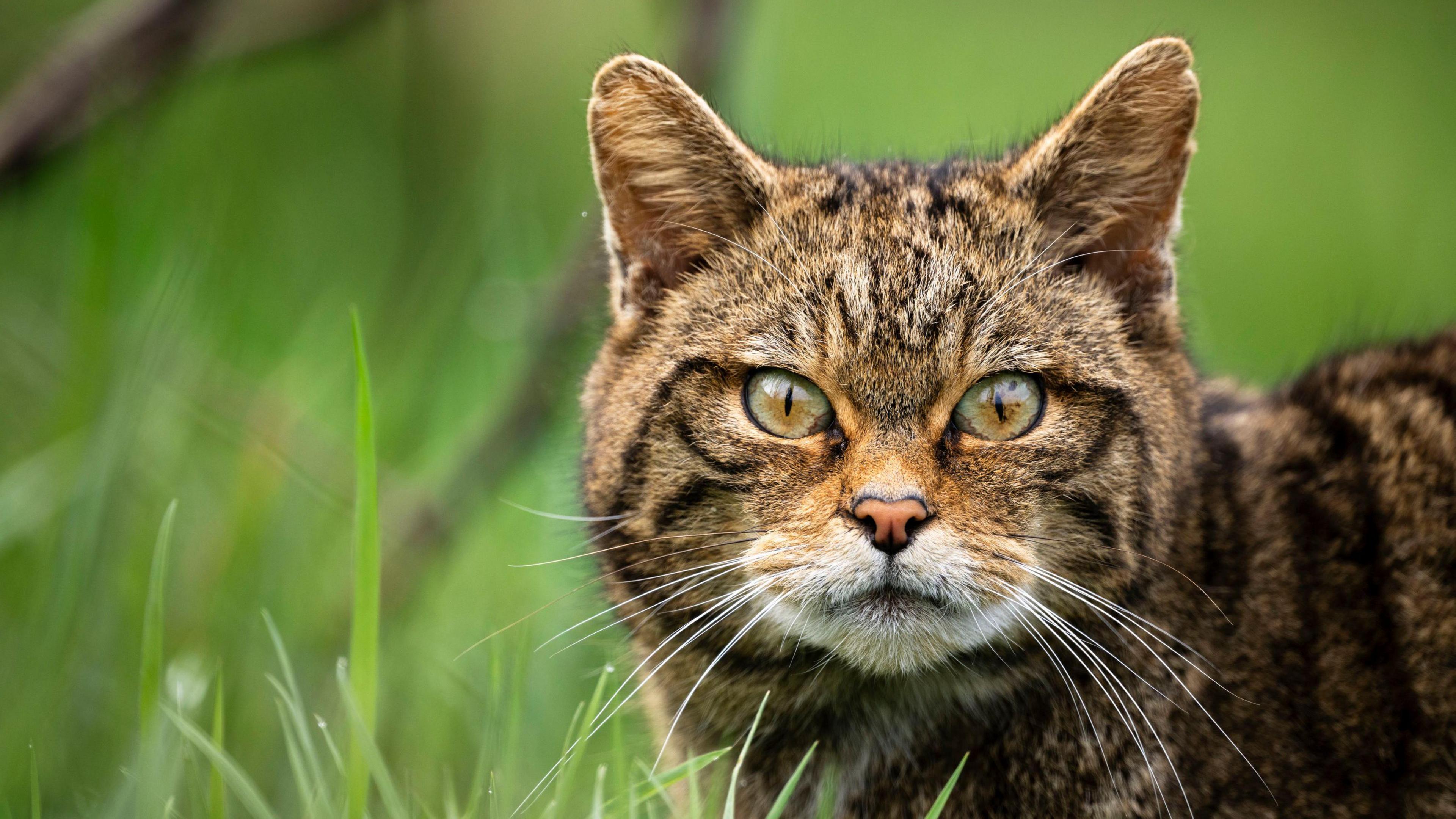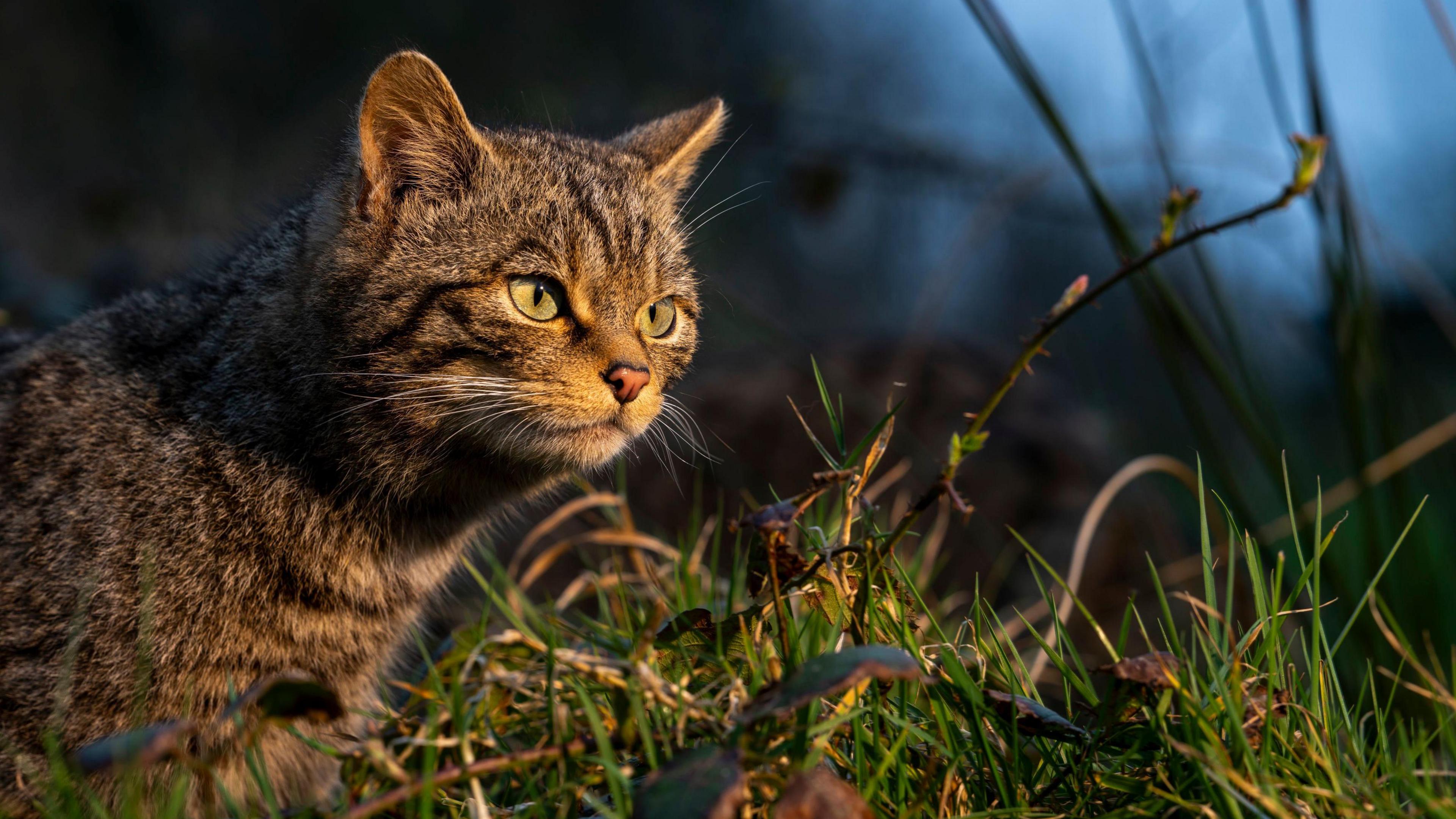Wildcats could make a return from extinction in England

- Published
A study has suggested that wildcats could make a comeback in the south-west of England, with an area across mid-Devon put forward as potentially the best spot for the animals to be reintroduced.
The research found that about 70%-80% of people in the region were positive about bringing them back to the area.
It also found there was enough woodland habitat in these areas, and wildcats would pose no significant risk to existing endangered wildlife.
The region also has a low density of towns and major roads, which are a key issue for wildcats in mainland Europe.
Wildcat kittens to be released in Scotland
- Published29 May 2023
Critically endangered wildcat kittens born in the wild in Scotland
- Published24 June 2024
Wildcat kittens to be reintroduced in England
- Published29 October 2019
Wildcats look similar to tabby cats that you would have as a pet, but they are larger, with a blunt-tipped tail.
They are also known as woodcats and are one of the UK's most threatened mammals.
They are Britain's only remaining native cat species but are critically endangered, with only around 115 left in the wild in the Scottish Highlands.
The South West was once home to many wildcats, and they are thought to have lived in Exmoor until the 1920s.
After this their numbers dropped due to attacks, hunting, and the loss and breaking-up of their woodland habitat.

Cath Jeffs, who leads the South West Wildcat Project for Devon Wildlife Trust, said: "It's exciting that this report suggests wildcats could be part of the region's nature once again.
"The return of this critically endangered species would be another step in the restoration of our native wildlife and will help re-balance local ecosystems."
There are no immediate plans to release wildcats, but Devon Wildlife Trust said its partners would look into what would need to be done, including securing funding.
If they were to be reintroduced, it would mean around 50 wildcats could be released over a period of time.
Wildlife experts have said "a lot of work remains to be done" before this, with a focus on talking to local people to make sure the animals and communities could live happily alongside each other in the future.
